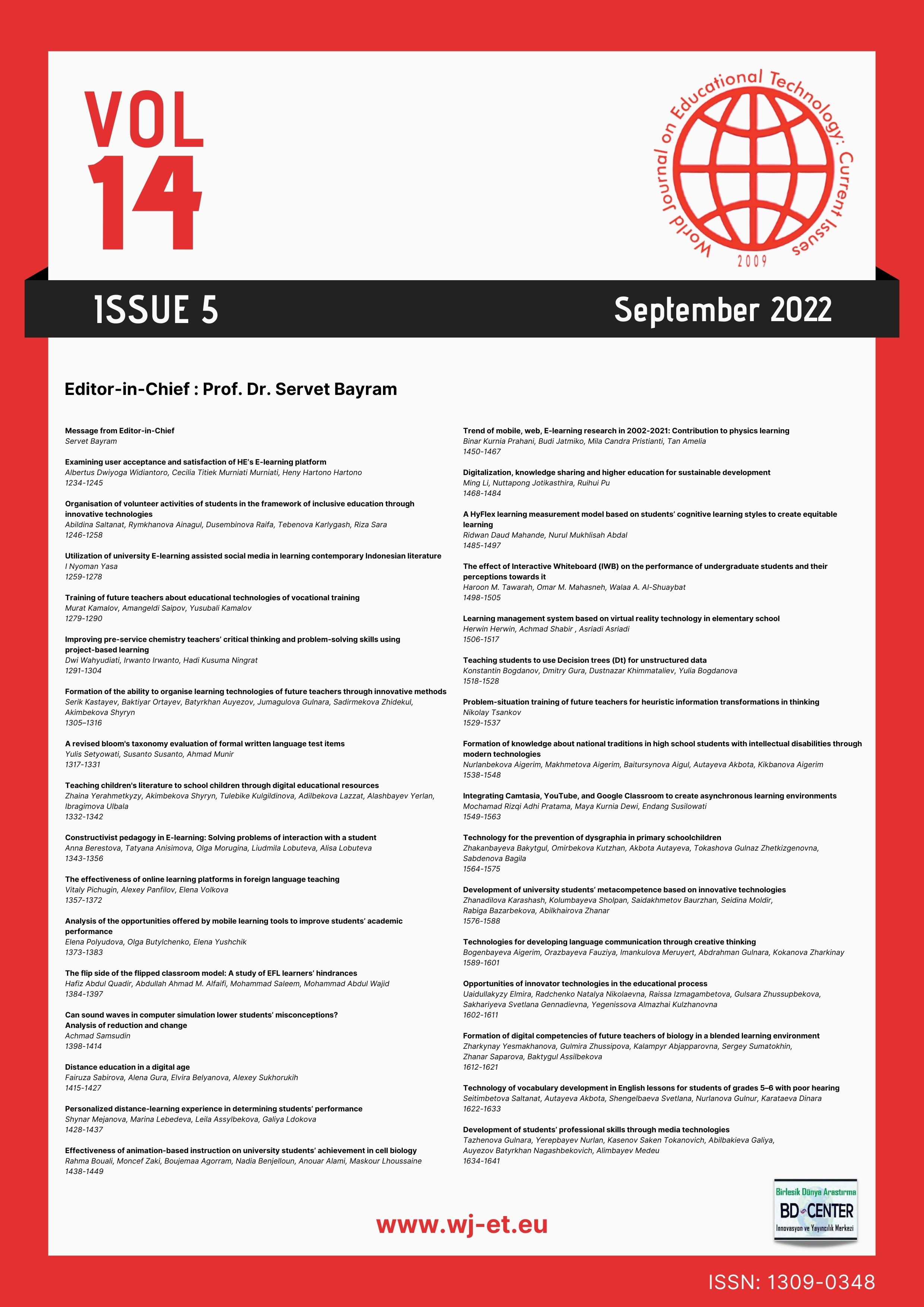Problem-situation training of future teachers for heuristic information transformations in thinking
Main Article Content
Abstract
The research seeks an optimal design of the educational environment in university education, ensuring the priority and sustainable development of cognitive skills underlying the research competence of students and their relationship with heuristic transformations in thinking as an opportunity to integrate information and develop information models within the constructivist paradigm. The main types of problems in problem-situation learning are reviewed and a relationship between students’ preferences for problems of different degrees of structure and information transformations in thinking, as a segment of the core research competence is tested. In the course of the empirical study, a system of practical problems was applied, using a transition approach from solving well-structured to solving unstructured or poorly structured problems, and the possibility of student choice was implemented. Thus, based on the tendency towards initiative and independence, heuristic transformations can be explored and used to form pathways towards the development of students' research competence.
Keywords: future teachers, heuristic information transformations, problem-situated learning, research competence, university education.
Downloads
Article Details

This work is licensed under a Creative Commons Attribution 4.0 International License.
World Journal on Educational Technology: Current Issues is an Open Access Journal. The copyright holder is the author/s. Licensee Birlesik Dunya Yenilik Arastirma ve Yayincilik Merkezi, North Nicosia, Cyprus. All articles can be downloaded free of charge. Articles published in the Journal are Open-Access articles distributed under CC-BY license [Attribution 4.0 International (CC BY 4.0)].
Birlesik Dunya Yenilik Arastirma ve Yayincilik Merkezi (BD-Center)is a gold open-access publisher. At the point of publication, all articles from our portfolio of journals are immediately and permanently accessible online free of charge. BD-Center articles are published under the CC-BY license [Attribution 4.0 International (CC BY 4.0)], which permits unrestricted use, distribution, and reproduction in any medium, provided the original authors and the source are credited.
